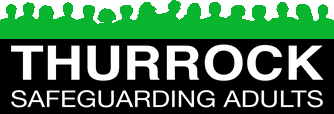Criminal Exploitation – What is it?
Criminal Exploitation includes gang crime and county lines. A gang may claim control over territory in a community, and engage either individually or collectively in violent behaviour or other types of criminal activity.
County lines is when gangs and organised crime networks groom and exploit children or adults to sell drugs. They may make them travel across counties, and they use dedicated mobile phone 'lines' to supply drugs. People who are being criminally exploited often use public transport (train, buses and taxis) to get around.
Organised crime gangs create a base in their chosen target area, usually by taking over the homes of local adults who gang members have identified as vulnerable. They do this either by force or coercion (known as ‘cuckooing’).
Who it happens to and who are the perpetrators?
Children and vulnerable adults who are trafficked, exploited or coerced into committing crimes are criminally exploited. The victims will usually have been targeted due to a vulnerability such as an addiction or learning disability.
Perpetrators of criminal exploitation may also be victims of the same crime. Although perceptions are changing adults can been seen as willing participants and criminalised for having chosen to take part, this perception can make exploitation of adults can be difficult to spot. Adults can be groomed in the same way as children, so it is important to use professional curiosity to test that what you are being told is the whole picture. The victim's consent may be given under coercion or duress, misplaced loyalty to the perpetrator, fear of repercussions, fear of prosecution, or a genuine belief that the situation is not abusive.
In order to break the cycle it is important for practitioners to view the victim as in need of support and not criminalise them or 'choosing' to take part. Practitioners must consider what they can replace the negative relationships and experiences with, as for some victims this will be the key to accepting support.
For information about disrupting perpetrators to protect victims read the NWG Perpetrator Disruption Toolkit
Possible signs
- Adults who look frightened in the company of others
- Associating with known gang members
- Allows others to speak for them when addressed directly
- Those under the influence of alcohol or drugs
- Their physical appearance may show signs of injury, malnourishment and maybe unkempt
- They might seem unfamiliar with the local area, or not have a local accent
- They could be receiving excessive texts or phone calls
- Are they deliberately avoiding authority figures such as police officers or railway staff?
- Unexplained money, clothes or mobile phones etc.
Links to other forms of abuse
Sexual or criminal exploitation is usually linked to other forms of abuse or crime, this could be:
- Modern Slavery and Trafficking (moving a person from one location to another to exploit them)
- County Lines
- Gangs
- Cuckooing (when your home is taken over by others and usually used for criminal activity such as selling drugs)
To learn about this in more depth you could read the real and very tragic Safeguarding Adult Review about Harry – Bournemouth.
For advice and support
Raise a concern by calling Thurrock First 01375 511000, or the Police on 101 or 999 in an emergency.
British Transport Police can be contacted by phone on 0800 40 50 40 or members of the public can report a crime or an incident that occurred on your train via text on 61016.
Crimestoppers – You can report concerns anonymously to Crimestoppers on 0800 555 111 or www.crimestoppers-uk.org
Missing People – call: 116 000
Criminal exploitation of children and vulnerable adults Home Office 2018
